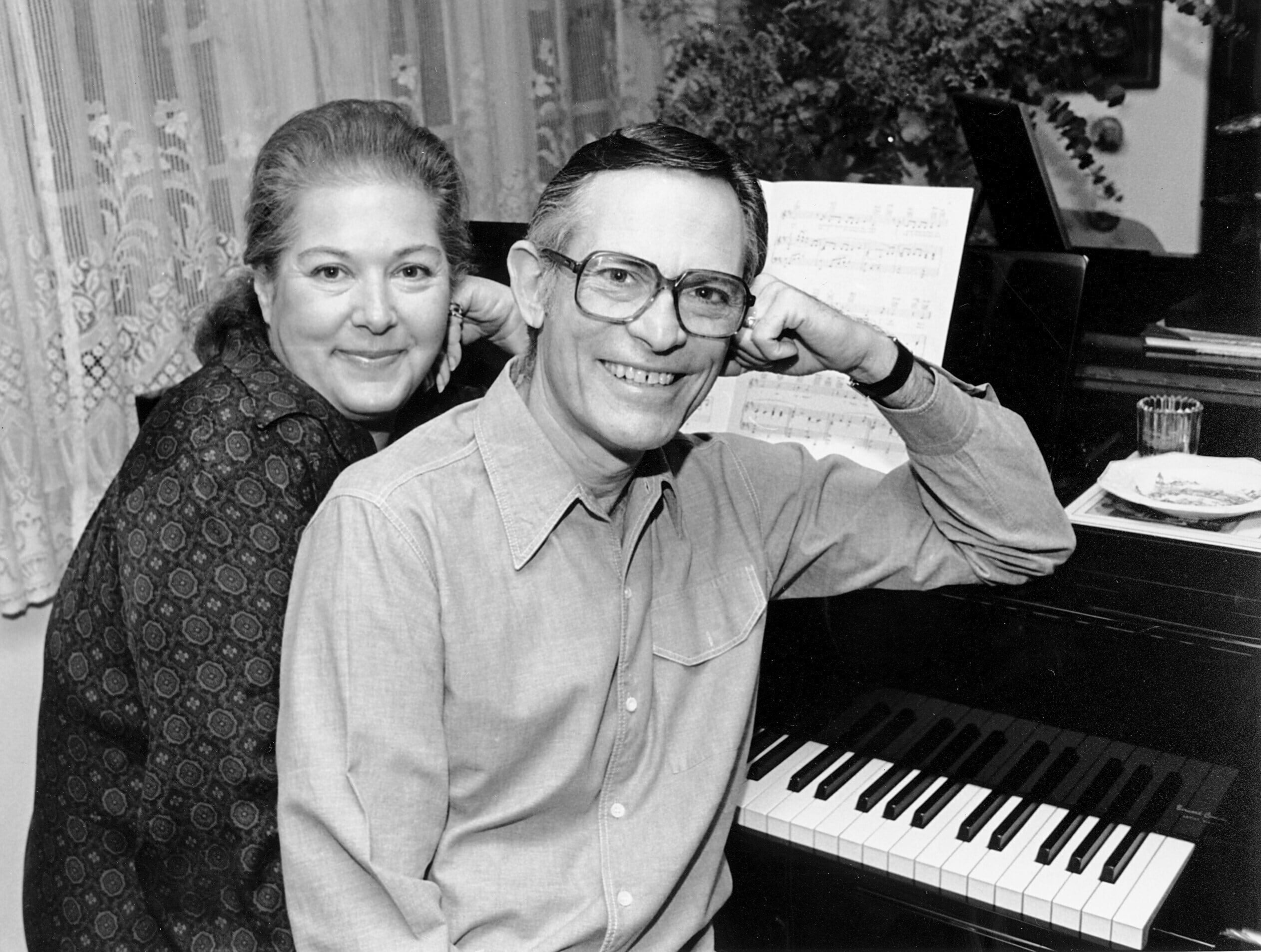
A Legacy of Love and Lyricism
Alan Bergman, the Oscar-winning lyricist whose partnership with his wife, Marilyn, created some of the most beloved songs of the 20th century, has passed away at the age of 99. Known for their timeless compositions such as “How Do You Keep the Music Playing?,” “It Might Be You,” and the iconic “The Way We Were,” the couple left an indelible mark on music history.
Bergman died late Thursday at his home in Los Angeles, according to a statement from family spokesperson Ken Sunshine. The statement noted that Bergman had been battling respiratory issues in recent months but continued to write songs until the end of his life. His wife, Marilyn, passed away in 2022, and the two remained together for over six decades, forming a deeply collaborative and loving relationship.
Throughout their careers, the Bergmans worked with some of the greatest names in music, including Marvin Hamlisch, Quincy Jones, Michel Legrand, and Cy Coleman. Together, they crafted lyrics for hundreds of songs, many of which became synonymous with the films and artists they accompanied. Their work was performed by icons like Frank Sinatra, Michael Jackson, Tony Bennett, and Barbra Streisand, who became a close collaborator and friend.
A centennial celebration of Alan Bergman is still planned for Santa Monica’s Broad Stage, featuring guests such as Michael Feinstein, Jackson Browne, and Patti Austin. Feinstein, who paid tribute to the couple, described them as “kind, talented, and principled artists” who lived “from a place called Love.”
Timeless Hits and Lasting Influence
The Bergmans’ ability to blend Tin Pan Alley sentiment with contemporary pop made their work accessible to millions. Many people knew their songs without ever knowing the names of the writers. Among their most famous works are the Streisand-Neil Diamond duet “You Don’t Bring Me Flowers,” Sinatra’s “Nice ’n’ Easy,” and the themes for the 1970s sitcoms “Maude” and “Good Times.” Their film compositions include Ray Charles’ “In the Heat of the Night,” Noel Harrison’s “The Windmills of Your Mind,” and Stephen Bishop’s “It Might Be You.”
Perhaps their most enduring song is “The Way We Were,” recorded by Barbra Streisand for the 1973 film of the same name. With its bittersweet melody by Marvin Hamlisch, the song captured the essence of nostalgia, beginning with the famous lines: “Memories / light the corners of my mind / misty watercolor memories / of the way we were.” It became the top-selling song of 1974 and earned the Bergmans one of their three Oscars, along with “Windmills of Your Mind” and the soundtrack to “Yentl.”
At times, the Academy Awards felt like a Bergman showcase. In 1983, three of the best song nominees featured their lyrics, and they received a total of 16 nominations throughout their careers.
Awards and Recognition
Beyond their Oscar wins, the Bergmans also earned two Grammys, four Emmys, and numerous lifetime achievement honors. Barbra Streisand honored their work with her 2011 album “What Matters Most,” which featured their songs. Bergman even took on vocal duties for the project, showcasing his versatility.
Although best known for their film work, the couple also contributed to Broadway with the musical “Ballroom” and provided lyrics for the symphony “Visions of America.” Their creative partnership extended beyond music, influencing theater and classical compositions alike.
A Life of Shared Passion
Their lives seemed to be written in verse. Born in the same Brooklyn hospital, four years apart, they grew up in the same neighborhood, attended the same Carnegie Hall concerts, and moved to California in the same year, 1950. They met while working for the same composer, though at different times of the day. Their courtship was steeped in music, with Alan writing a song for Fred Astaire that led to a proposal.
Alan had always dreamed of becoming a songwriter. He studied music and theater at the University of North Carolina and earned a master’s degree from UCLA, where he befriended Johnny Mercer and became his protégé. He and Marilyn began writing children’s songs together, achieving commercial success in the late 1950s with the calypso hit “Yellowbird.” Their friendship with Streisand began when they visited her backstage during one of her early performances, with Marilyn famously greeting her with, “Do you know how wonderful you are?”
A Lasting Partnership
The Bergmans often found themselves thinking of the same words simultaneously, a dynamic Alan compared to housework—“one washes, one dries”—which inspired a song title. Though he rarely named a favorite, Alan cited “A Love Like Ours” as one of their most personal works:
“When love like ours arrives / We guard it with our lives / Whatever goes astray / When a rainy day comes around / A love like ours will keep us safe and sound.”
Alan is survived by his daughter, Julie Bergman, and granddaughter. His legacy continues through the countless songs that have touched generations of listeners.


